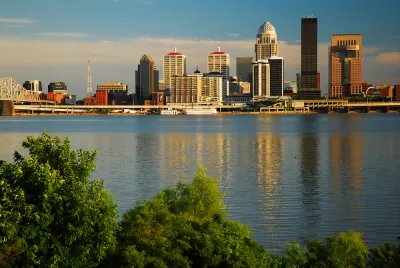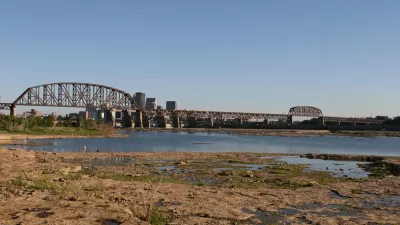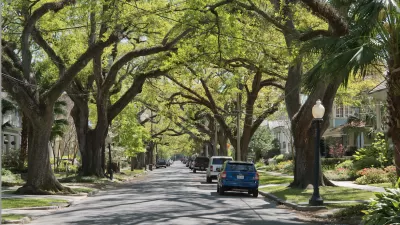Faced with a costly urban heat island effect, Louisville is working on a new tree-protection ordinance that could be headed for a vote this week.

Louisville is nearing the finish line on a new tree-protection ordinance a year after starting work on the project and several more years of debate.
"What started out three years ago as a call for a no-let-loss [sic] tree policy for Louisville by a now disbanded mayoral advisory commission now strictly focuses on protecting trees planted in Louisville Metro public rights of way," according to an article by James Bruggers.
Among the specific provisions of the tree-protection ordinance, according to Bruggers, are provisions that property owners abutting city-owned rights-of-way must maintain trees and receive permits for removal. The ordinance would also establish a tree advisory commission and create an urban forestry division within the metro government.
"The ordinance would do nothing to address the loss of trees on private property during land development," adds Bruggers. As previously reported by Planetizen, a 2013 study found that Louisville has the worst urban heat island effect of any city in the United States, and the tree-protection ordinance is a component of the city's response.
FULL STORY: Louisville may require homeowners to replace lost street trees

Study: Maui’s Plan to Convert Vacation Rentals to Long-Term Housing Could Cause Nearly $1 Billion Economic Loss
The plan would reduce visitor accommodation by 25,% resulting in 1,900 jobs lost.

North Texas Transit Leaders Tout Benefits of TOD for Growing Region
At a summit focused on transit-oriented development, policymakers discussed how North Texas’ expanded light rail system can serve as a tool for economic growth.

Why Should We Subsidize Public Transportation?
Many public transit agencies face financial stress due to rising costs, declining fare revenue, and declining subsidies. Transit advocates must provide a strong business case for increasing public transit funding.

How to Make US Trains Faster
Changes to boarding platforms and a switch to electric trains could improve U.S. passenger rail service without the added cost of high-speed rail.

Columbia’s Revitalized ‘Loop’ Is a Hub for Local Entrepreneurs
A focus on small businesses is helping a commercial corridor in Columbia, Missouri thrive.

Invasive Insect Threatens Minnesota’s Ash Forests
The Emerald Ash Borer is a rapidly spreading invasive pest threatening Minnesota’s ash trees, and homeowners are encouraged to plant diverse replacement species, avoid moving ash firewood, and monitor for signs of infestation.
Urban Design for Planners 1: Software Tools
This six-course series explores essential urban design concepts using open source software and equips planners with the tools they need to participate fully in the urban design process.
Planning for Universal Design
Learn the tools for implementing Universal Design in planning regulations.
City of Santa Clarita
Ascent Environmental
Institute for Housing and Urban Development Studies (IHS)
City of Grandview
Harvard GSD Executive Education
Toledo-Lucas County Plan Commissions
Salt Lake City
NYU Wagner Graduate School of Public Service





























